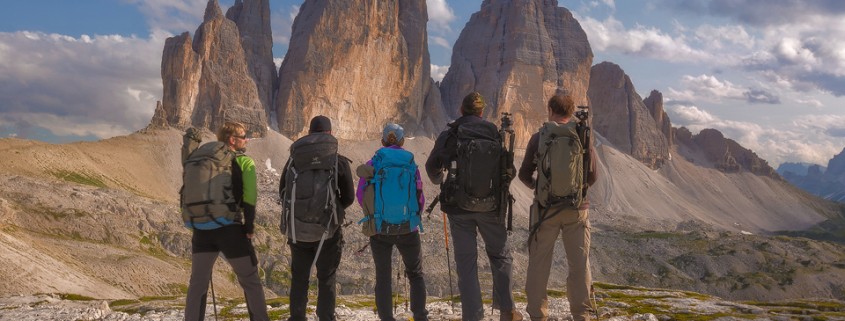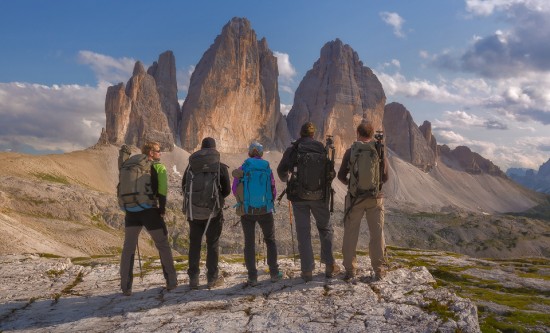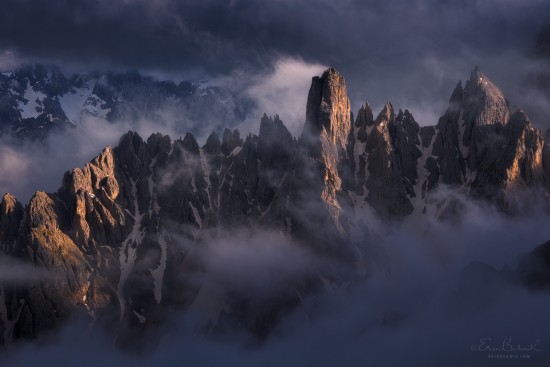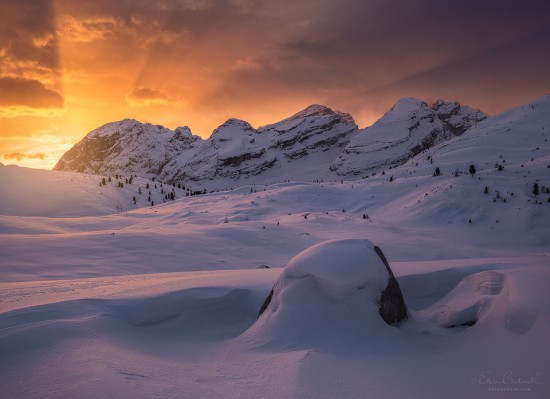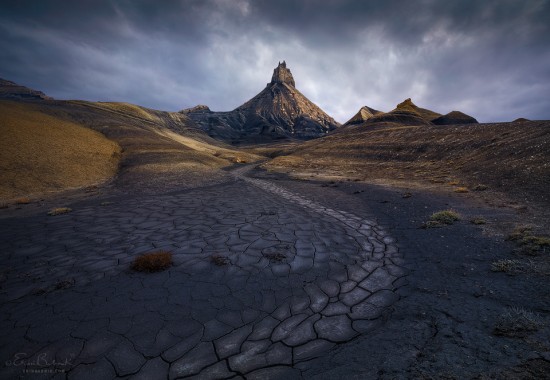How to Make the Most of a Photography Workshop
When you look at Erin Babnik’s photographs, you’ll want to quit your day job and go exploring this magnificent planet of ours. Erin’s photos are characterized by magnificent light, fantastic colors, and remote locations that take your breath away. Since Erin runs both private and group workshops, Infocus Magazine decided to ask Erin how an aspiring photographer can make the most of a photography workshop.
Is there anything that a participant can do before a workshop that can help them to get off to a great start?
Yes, get plenty of sleep! Landscape photography workshops typically involve getting up early for sunrise outings and being physically active in order to reach locations and to move around for good positioning. If you are well-rested before the workshop begins, you’ll handle these challenges more easily.
Before a workshop begins, it’s also important to ensure that you have read all of the information about it. If there is a web page or brochure that lists an itinerary, equipment requirements, or travel recommendations, be sure to read it all carefully. You don’t want to compromise your experience by being unprepared; make sure that you are fully informed and ready for everything in the program.
Given your extensive teaching background, you must have a lot of advice for how a person can make the most of any learning experience. What can a participant do during the course of instruction to maximize the benefits of a photography workshop?
Above all, it’s important that a participant enjoys their workshop experience because people tend to learn more when they enjoy the process. Enjoyment comes more easily when you are flexible and do not have rigid expectations, so having the right frame of mind going into a workshop helps a lot. There is an old saying that a full cup leaves no room for anything new, meaning that anyone who wants to learn something should have an open mind. Without trying new ideas and techniques, we are destined to repeat old ones and letting go of old habits, at least temporarily, can be a necessary step for advancement. A participant in a photography workshop should be willing to try out whatever approaches to photography an instructor might recommend, whether it’s a change in camera settings, a different style of composition, or a greater tolerance of challenges associated with working outdoors. If you approach new ideas with excitement and curiosity, you will have more fun experimenting and will get more out of the experience.
Of course, in order to follow an instructor’s advice, it is first necessary to hear and understand it. Exercising good listening habits is essential to ensure that you absorb all of the details and explanations that an instructor has to offer. Asking questions is another important part of the learning process; if you do not fully understand a concept or would like to know more about why an instructor recommends it, be sure to ask for more information or clarification.
What should a person do if they don’t come away with a great photo?
Sometimes weather conditions can make a photography outing especially challenging, and sometimes working with new techniques or ideas can cause a person to miss a shot. Whatever the reason, coming away from any outing without an exciting photo can be discouraging, but it is important to carry forward that experience in a positive manner. Try to imagine what you could have done differently or what changes in the conditions might have made a positive difference in the resulting photograph; assessing your decisions and visualizing different situations can be very helpful exercises that can make a difference in future efforts. If the thought process enables better reactions to conditions or better location research, then the unfruitful outing will have been a useful learning experience.
Do you have any advice for maximizing the workshop experience after it’s over?
Anything that is newly learned is easily forgotten without prompt repetition, so it helps to get out and practice the lessons of a workshop soon after it’s over. Also, if you know that your instructor was able to take photographs while teaching, keep an eye out for those images so that you can compare them with your own. Do the same for any images created by fellow workshop participants. It can be very instructive to see how different people interpret the same scene, so be sure to take advantage of such opportunities.
We are delighted to report that Erin Babnik is our latest contributing author to Visual Wilderness. What would you most like to get out of a workshop? Feel free to comment about it below, and if you want to learn more about Erin’s workshops, visit http://www.erinbabnik.com/workshops

